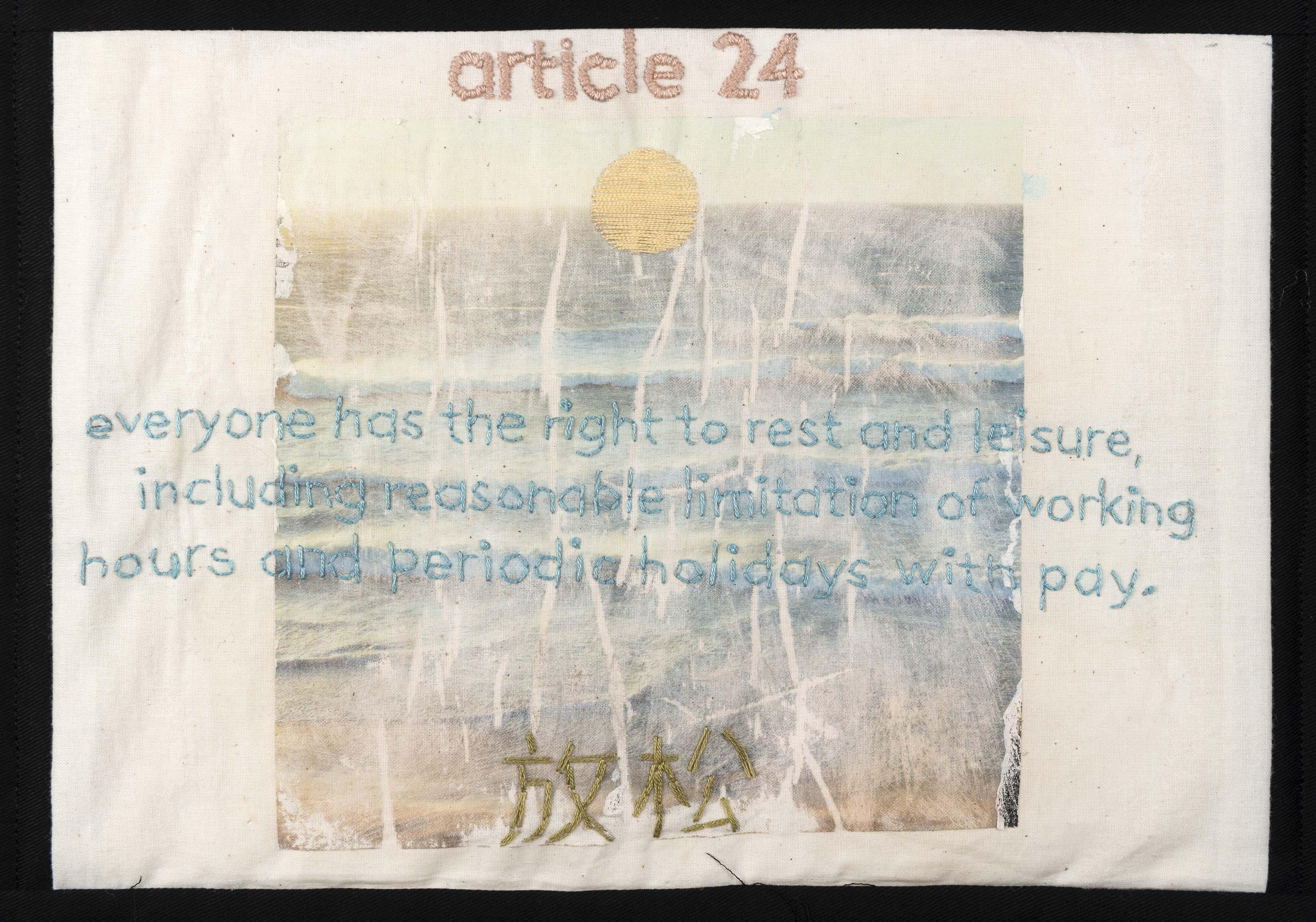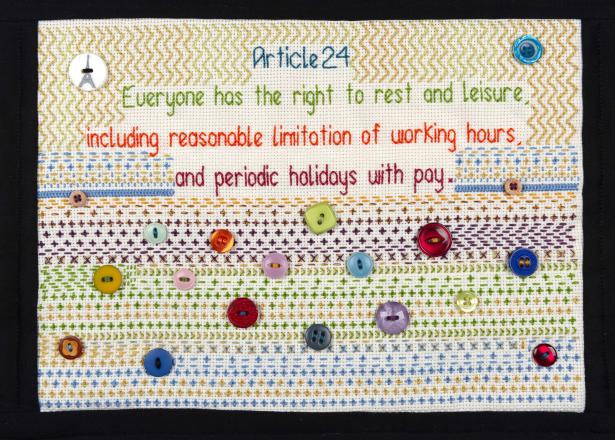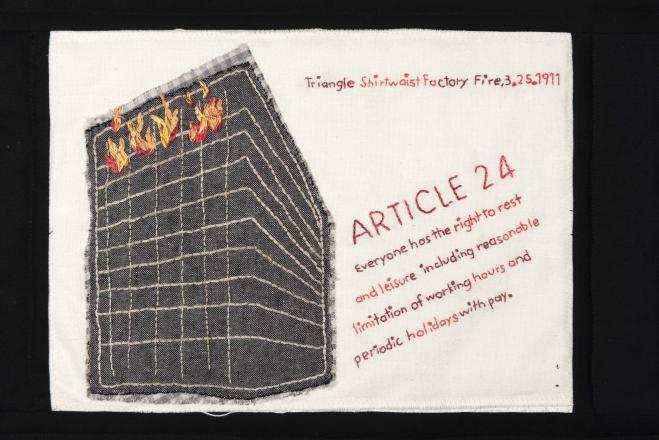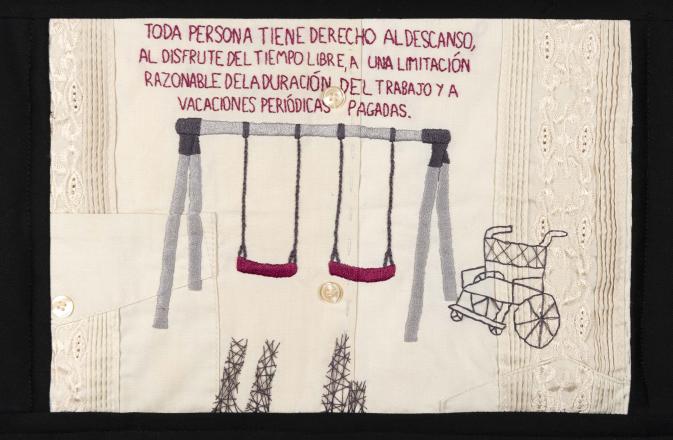Article 24
Everyone has the right to rest and leisure, including reasonable limitation of working hours and periodic holidays with pay.
Brinley Froelich
About my work
Work does not define our worth. Many of us are stuck in jobs we don’t love because we need them to survive. The irony of working for survival is that it’s also deadly—those who are overworked or underpaid are often burdened by ill health or early death.
I was drawn to Article 24 because it’s important to define our lives around the things we choose to do, not what we are coerced to do. A meaningful life is created through our leisure activities—like spending time with friends and family, catching up on sleep, entertainment, relaxing, travelling, or creating art—things that fall outside the realm of production and consumption. The quiet moments of life are truly defining, and everyone by nature of their humanity has the right to enjoy those. This short and simple Article alludes to the need for us to prioritise the lives we lead outside of our jobs.
- Brinley Froelich
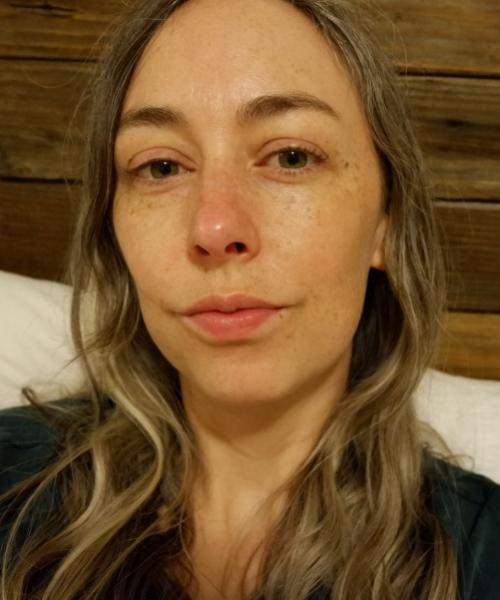
About me
Brinley Froelich is a multimedia artist who focuses on embroidery, yoga and the written word. She was born in Oakland, California, and now lives deep in the heart of the valley in Salt Lake City, Utah. Influenced by writers of the nearby deserts such as Edward Abbey, Wallace Stegner, and Terry Tempest Williams, her work is rooted in the imagination of place. As a white person inhabiting Indigenous land, her work also seeks to restore rights, land, and power to those from whom it was unjustly stolen.
Embroidering was a common practice taught through the Mormon culture in her youth, but it was while studying Chinese poetry in college that the medium generated a new way of looking at it. In her class, Su Hui became her focus, a poet known for hand-stitching a palindrome poem for her distant lover. Learning about Su Hui sparked a new style of art for Brinley, in which she explores the intersections of visual and written art by layering ancestral, heritage poetics and stitches on top of modern, printed photographs. It is the artist’s hope to continue exploring how the past shapes the present, using a forward-thinking perspective to imagine what new worlds we can sprout from today.
Despite being against work as defined by our global economy, she still enjoys the kind of work that falls under her own terms, or the kind that directly impacts her community in positive ways. Whether it be hosting yoga workshops, promoting artists under the Boo Forever Collective, self-publishing zines, or educating people about the harms of mass incarceration, her work seeks to dismantle the oppressive nature of capitalism, white supremacy, and the violence that falls under the umbrella of the patriarchy.

